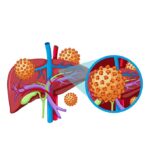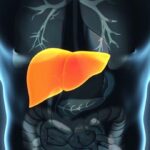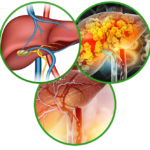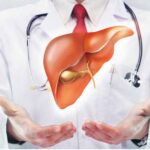
Dr. Arvind Chaudhry is the Director and Chief Physician at Ayurmax Multispeciality Ayurveda Hospital in Dehradun. Specializing in Ayurvedic treatments for lifestyle diseases, cancer, and spine ailments, he has been recognized with numerous awards for his pioneering work. He also serves as a member of multiple prestigious medical associations.
Contact Us
- 82, Vivek Vihar, Pocket 3, Balliwala Chowk, Dehradun, Uttrakhand 248001
- Ayurmaxx@gmail.com
- 8828888809
Social Contact
What is Fatty Liver?
Fatty liver, or hepatic steatosis, is a condition where excess fat builds up in the liver cells. This can be caused by various factors, including excessive alcohol consumption (alcoholic fatty liver disease) or metabolic disorders like obesity and diabetes (non-alcoholic fatty liver disease). In some cases, fatty liver is asymptomatic, but it can lead to liver inflammation, scarring (fibrosis), and even liver failure if left untreated. Lifestyle changes, such as a healthy diet, regular exercise, and weight loss, are essential in managing and reversing fatty liver. Early diagnosis and treatment are crucial to prevent serious complications.
Alcoholic Fatty Liver Disease
- Alcoholic Fatty Liver or Steatosis
- Alcoholic Hepatitis
- Alcoholic Cirrhosis
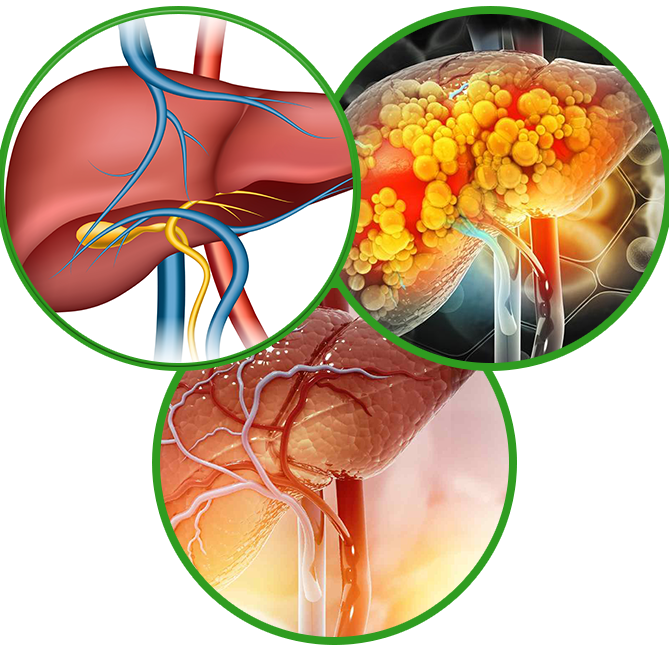

What Are The Causes Of Fatty Liver?
Fatty liver can be caused by several factors, including excessive alcohol consumption, obesity, insulin resistance, and high blood sugar levels, which are common in type 2 diabetes. High levels of fats, particularly triglycerides, in the blood can also contribute. Other causes include rapid weight loss, malnutrition, and certain medications like corticosteroids and some chemotherapy drugs. In the case of nonalcoholic fatty liver disease (NAFLD), the exact cause is unclear, but it's often associated with metabolic syndrome, which includes conditions like obesity, hypertension, and high cholesterol.
- Insulin resistance
- Increased fat levels
- Insulin resistance
- Increased fat levels
- Metabolic disorders
- Obesity
Types Of Fatty Liver Disease
 fatty liver
fatty liver
Non-alcoholic fatty liver
Nonalcoholic fatty liver disease (NAFLD) refers to fat deposits in the liver of people who do not consume excessive alcohol. If you have high liver fat without a history of heavy drinking, you may be diagnosed with NAFLD. When there’s no inflammation or other complications, it’s called simple NAFLD. Ayurvedic treatment for nonalcoholic fatty liver focuses on relieving symptoms and enhancing liver function through natural remedies and lifestyle changes.
-
Organizer
-
Venue
- + Google Map
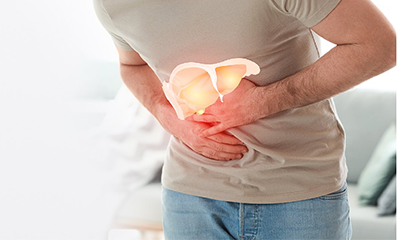 Liver
Liver
Alcoholic fatty liver
Alcoholic fatty liver is a condition where excess fat accumulates in the liver due to heavy alcohol consumption. It's the earliest stage of alcohol-related liver disease and is often reversible with abstinence from alcohol. If untreated, it can progress to more severe liver conditions like alcoholic hepatitis or cirrhosis. Symptoms may include fatigue, weakness, and discomfort in the upper right abdomen, but many people are asymptomatic. Early diagnosis and lifestyle changes, including stopping alcohol intake and adopting a healthy diet, are crucial for recovery and preventing further liver damage.
-
Organizer
-
Venue
- + Google Map
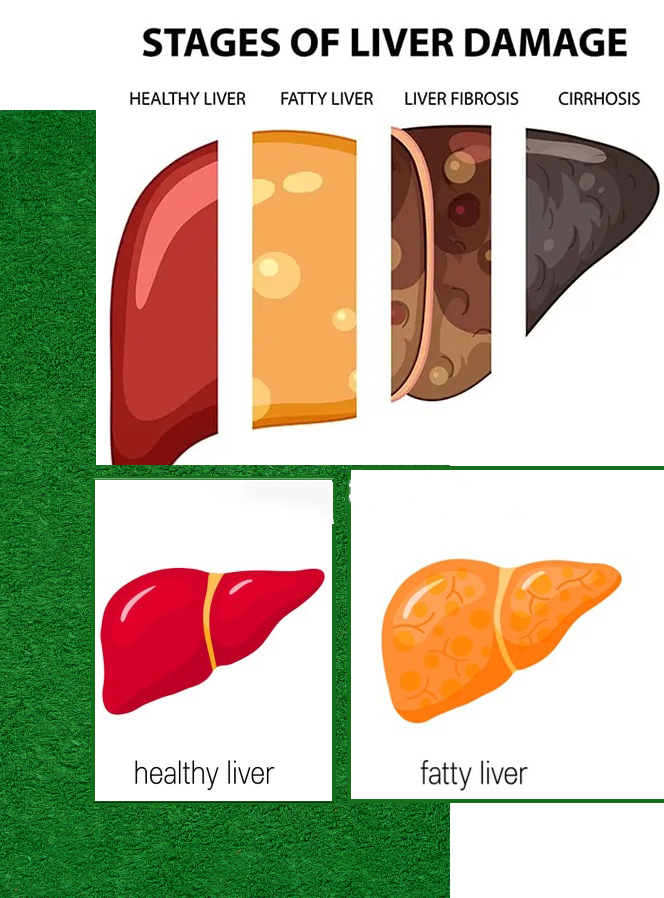
Stages Of Fatty Liver
Simple Fatty Liver: Excess fat is stored in the liver, but it’s usually safe as long as it doesn’t progress. Steatohepatitis: The liver is not only enlarged but also inflamed, indicating a more serious condition that can lead to further damage. Fibrosis: Chronic inflammation has caused scarring in the liver, but it can still function properly in many cases. Liver Cirrhosis: Extensive scarring severely impairs the liver’s function. This is the most serious stage, and the damage is irreversible.
Simple fatty liver, also known as nonalcoholic fatty liver (NAFL), is a condition where fat accumulates in the liver without causing inflammation or damage. It’s the mildest form of nonalcoholic fatty liver disease (NAFLD) and is often asymptomatic. Simple fatty liver typically does not progress to more severe liver issues and can be managed with lifestyle changes such as a healthy diet, regular exercise, and weight loss. Early intervention is important to prevent the potential progression to more serious liver conditions.
Steatohepatitis is a more severe form of fatty liver disease characterized by the inflammation of the liver along with fat accumulation. There are two main types: alcoholic steatohepatitis (ASH), caused by excessive alcohol consumption, and nonalcoholic steatohepatitis (NASH), often linked to obesity, type 2 diabetes, and metabolic syndrome. Steatohepatitis can lead to liver scarring (fibrosis) and eventually progress to cirrhosis or liver cancer if untreated. Symptoms may include fatigue, abdominal pain, and elevated liver enzymes. Treatment focuses on addressing the underlying causes and preventing further liver damage.
Fibrosis is a condition where chronic liver inflammation leads to the formation of scar tissue. This scarring occurs as the liver attempts to repair itself, but over time, it can interfere with liver function. In the fibrosis stage, the liver can still perform its essential functions, but the damage may progress if the underlying cause isn’t addressed. Early intervention is crucial to prevent the progression to cirrhosis, where the liver's ability to function becomes significantly compromised.
Signs And Symptoms Of Fatty Liver
Fatty liver often presents with few or no symptoms, especially in its early stages. When symptoms do occur, they may include fatigue, weakness, and discomfort or pain in the upper right abdomen. Some individuals may experience unexplained weight loss, nausea, and an enlarged liver. As the condition progresses, particularly in cases of nonalcoholic steatohepatitis (NASH), symptoms can become more severe, including jaundice (yellowing of the skin and eyes), swelling in the abdomen, and confusion, indicating potential liver damage or failure.
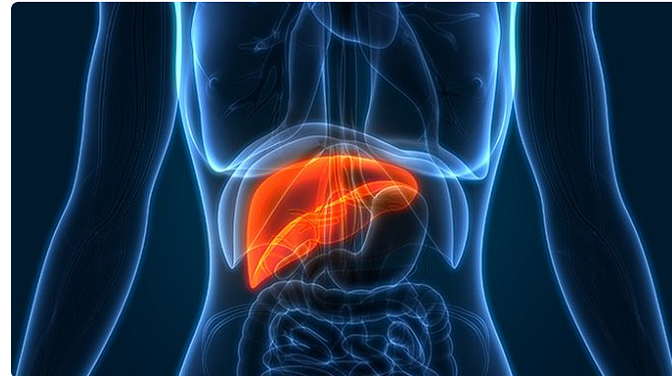
Complications Of Fatty Liver Disease
Fatty liver disease can lead to several complications if left untreated. In its early stages, it may cause mild inflammation, but as it progresses, it can lead to nonalcoholic steatohepatitis (NASH), where inflammation and liver cell damage occur. NASH can further develop into fibrosis, characterized by scar tissue in the liver. If fibrosis worsens, it can result in cirrhosis, a severe condition where extensive scarring impairs liver function. Cirrhosis can lead to liver failure, liver cancer, and other life-threatening complications, requiring advanced medical intervention, including liver transplantation.
Why Choose Ayurmax Hospital
Ayurmax Hospital is a leading healthcare facility that combines traditional Ayurvedic medicine with modern medical practices to provide holistic and personalized care. The hospital offers a wide range of treatments tailored to individual needs, focusing on natural healing and overall well-being. Ayurmax is staffed with experienced Ayurvedic practitioners and modern medical professionals, ensuring a comprehensive approach to health. The hospital is known for its state-of-the-art facilities, patient-centered care, and commitment to treating the root cause of ailments rather than just the symptoms, making it a trusted choice for those seeking natural and effective healthcare solutions.
Ayurvedic Expert
Dr. Arvind Kr. Chaudhary is an Ayurvedic expert known for his specialized treatment of liver conditions using traditional Ayurvedic principles. At Ayurmax Hospital, he focuses on natural therapies and herbal remedies to address various liver issues, including fatty liver, hepatitis, and cirrhosis. Dr. Chaudhary's approach emphasizes detoxification, improving liver function, and restoring balance in the body through personalized treatment plans. His expertise in Ayurvedic medicine allows patients to experience holistic care that targets the root cause of liver ailments, promoting long-term health and well-being.
Frequently Asked Questions
At Ayurmax Hospital, Ayurvedic treatment for fatty liver includes a personalized plan featuring detoxification with herbal formulations, dietary adjustments, and lifestyle modifications. Treatments focus on reducing liver fat, improving digestion, and restoring overall liver health.
Ayurvedic treatment for fatty liver can be safe and effective when supervised by a qualified practitioner. It typically involves natural remedies and lifestyle changes that support liver health. However, it's essential to consult with a healthcare provider to ensure it's appropriate for your specific condition and to avoid interactions with other treatments.
Improvement in fatty liver with Ayurveda can vary depending on the individual's condition and adherence to the treatment plan. Generally, noticeable improvements may take a few weeks to several months. Consistent treatment, dietary changes, and lifestyle modifications are crucial for achieving and maintaining better liver health.
Ayurveda can complement conventional medical treatments for fatty liver, but it may not always replace them. Integrating both approaches can offer a comprehensive treatment plan. It’s important to work with healthcare professionals to tailor the treatment to your specific needs and ensure effective management of fatty liver.
Yes, during Ayurvedic treatment for fatty liver at Ayurmax Hospital, you will likely need to follow a specific diet tailored to your condition. This diet typically focuses on reducing fatty foods, increasing fiber intake, and incorporating foods that support liver health, such as fruits, vegetables, and whole grains. Your Ayurvedic practitioner will provide personalized dietary recommendations based on your individual needs.
© Copyright 2023 Webwarptech All Rights Reserved

